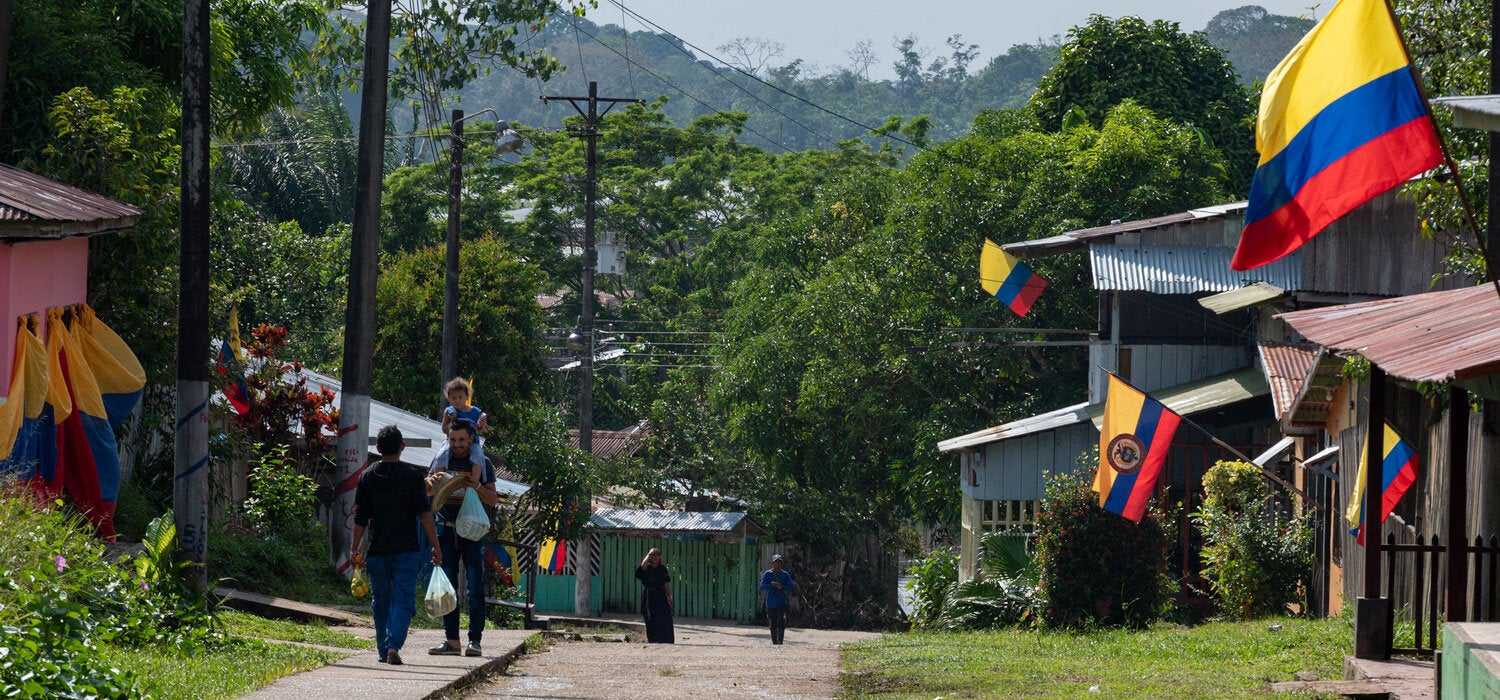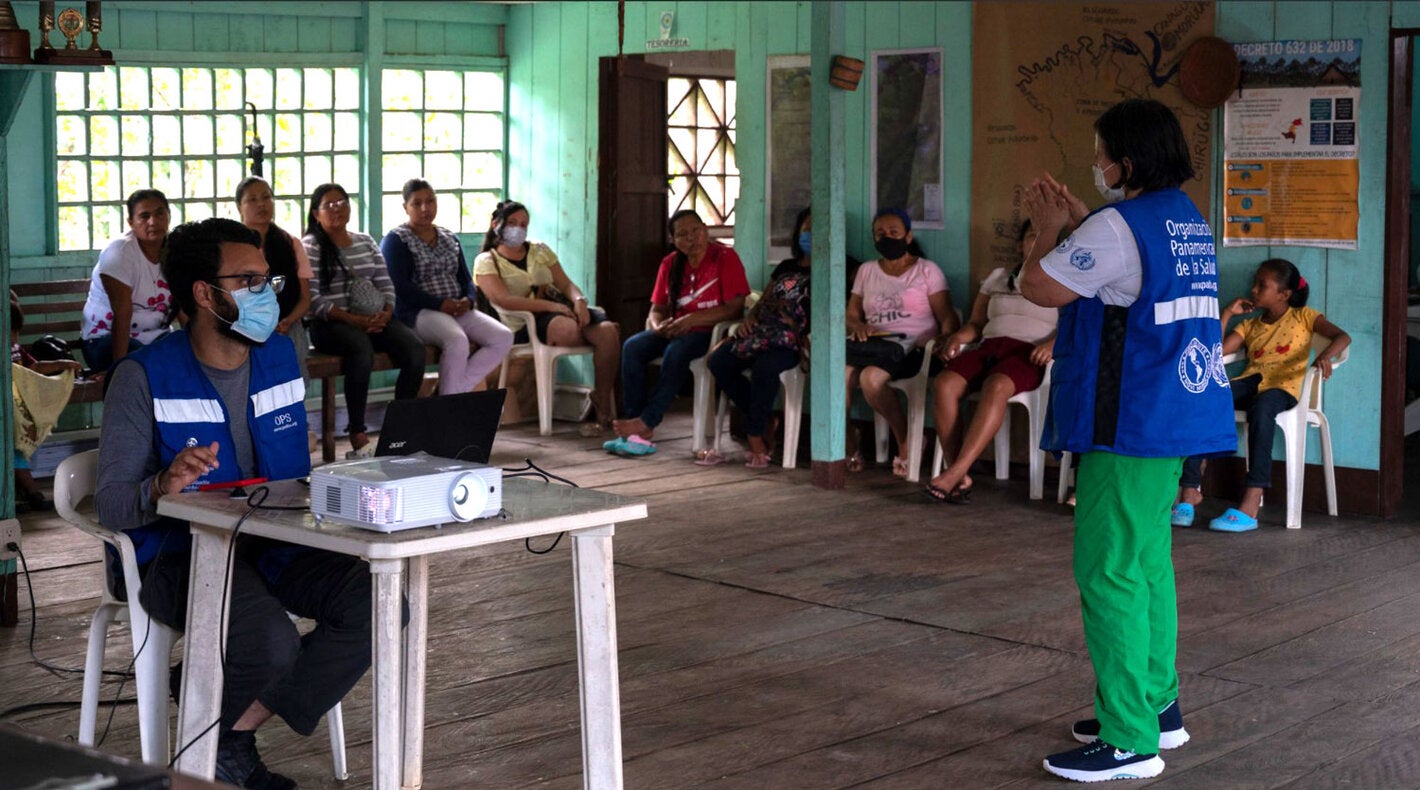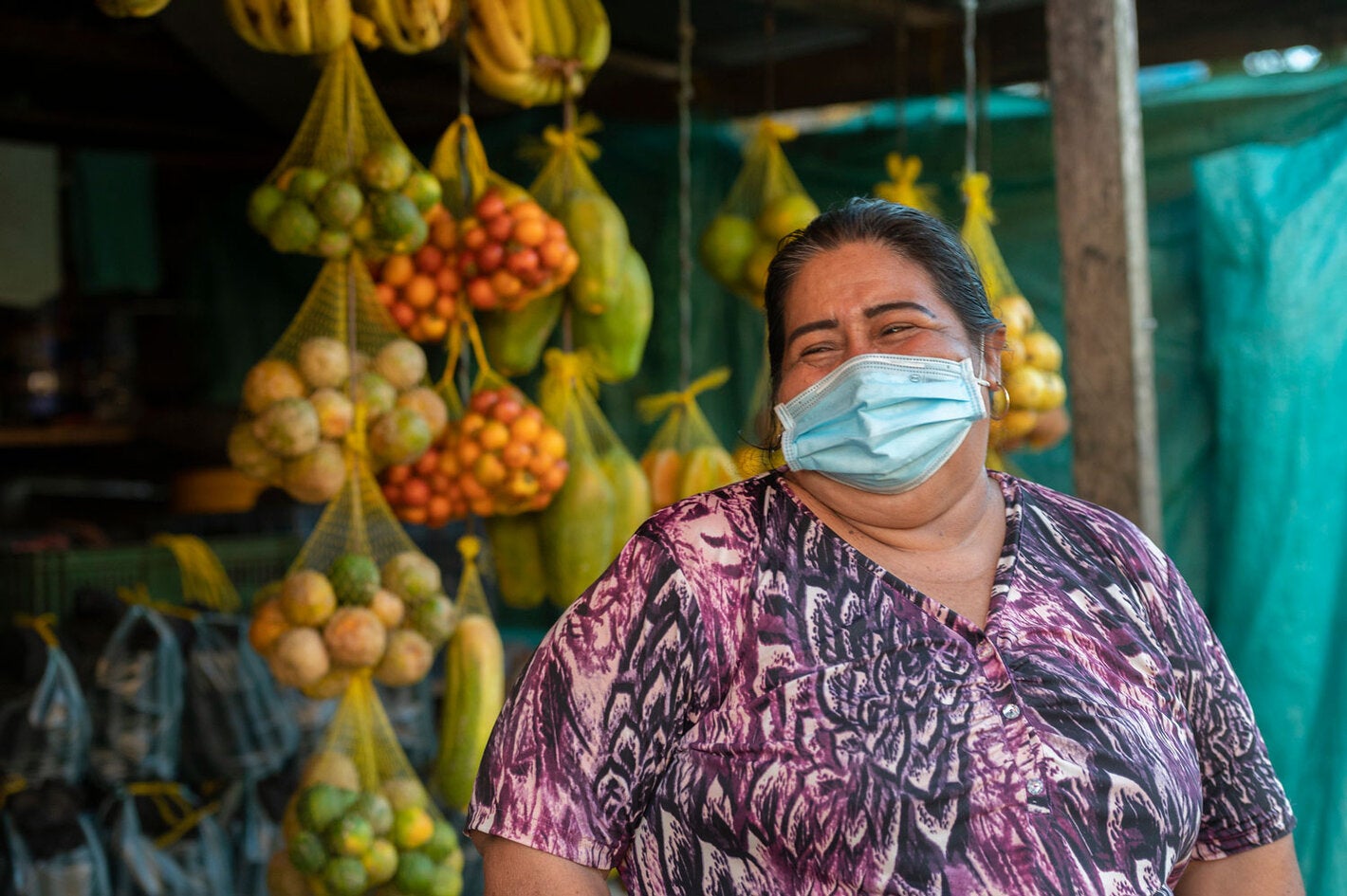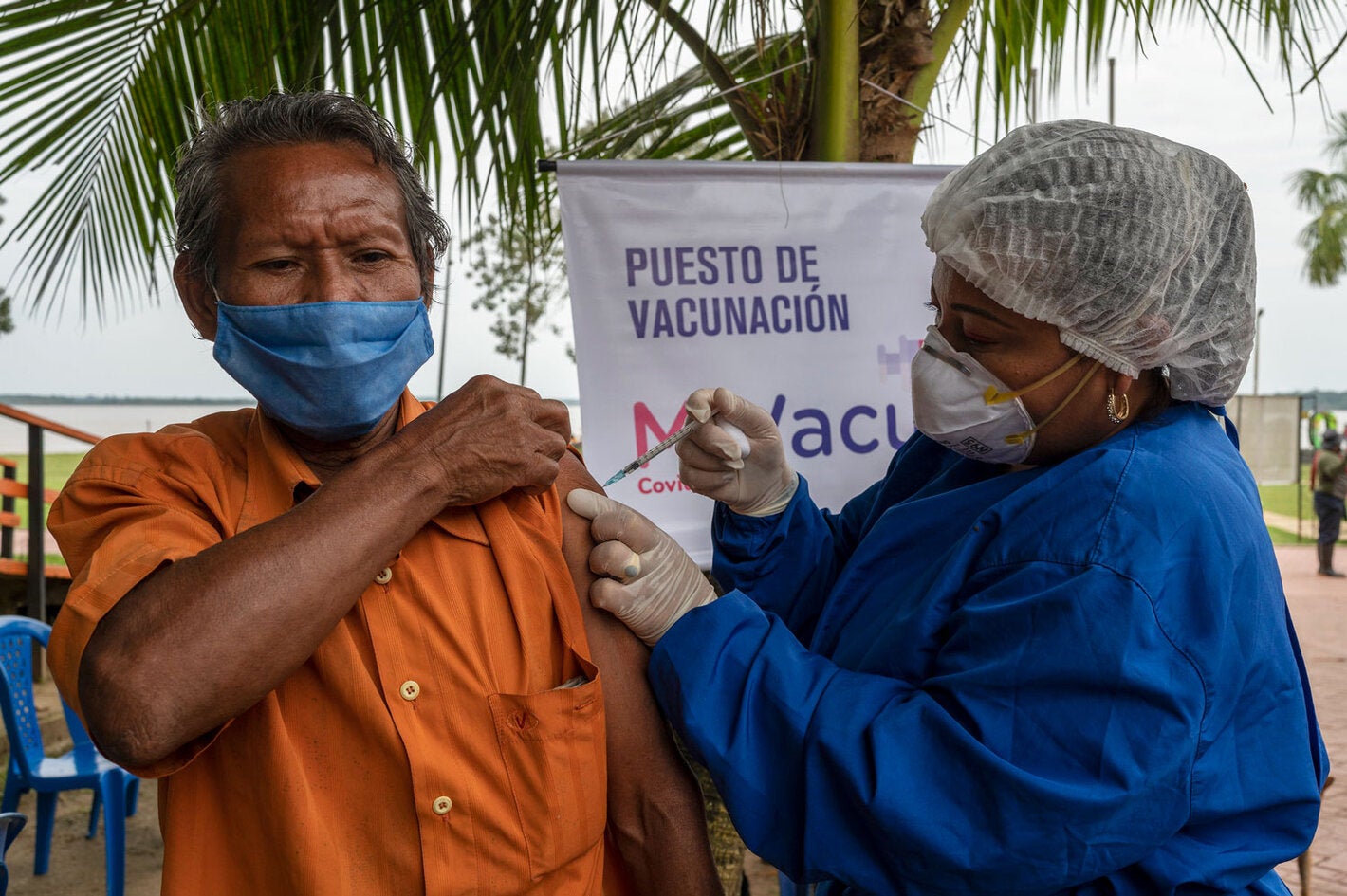August 9, 2021
In May 2021, Teófilo Tatayeri contracted COVID-19, a disease that, as he says, "almost put me in the hole." To avoid repeating the tragedy that put his life at risk, when he learned that they were vaccinating in Puerto Nariño, he refused to wait for the health brigade to arrive in his community. Without thinking twice, together with Yagua family and friends, from the Siete de Agosto community, he decided to embark on a two-hour river crossing on the Atacuari River to be vaccinated.
In the Amazon jungle, all kinds of false beliefs circulate: from the fact that the vaccine can turn them into alligators to the fact that the objective of the pharmaceutical companies is to steal the indigenous DNA. However, villagers like Teófilo are determined to put their shoulders to the protection and not believe in those demons that, according to the traditional Yagua belief, transform themselves into human beings to deceive people.
However, the situation is different among people from the other nine non-municipalized areas of the Colombian Amazon inhabited by peoples such as the Ticunas, Uitotos, Muinanes, Ocainas, Yaguas, Cocamas and Boras. There, misinformation has taken hold and the pandemic continues to threaten their survival.
To protect these populations, the Health Secretariat of Leticia is working against the clock: due to its capacity to preserve the cold chain and the safety of the biological product, it has less than three months to apply the 7,792 doses of vaccines received in July among the members of the 136 indigenous communities that live scattered in a territory the size of Cuba, which is accessed mainly through long river journeys.
Moreover, entering the territory requires dialogue and consultation with local indigenous authorities, for which the Colombian government and the local health authority have decided to enlist the support of the Pan American Health Organization/World Health Organization (PAHO/WHO).
Sweetening the word to save lives
At the height of the summer solstice, La Chorrera reports the seventh victim of the pandemic. With the economic reactivation and the return of travel to the Amazon, the virus has spread again, and it is necessary to build bridges between ancestral knowledge and knowledge based on scientific evidence to prevent the disease and save lives.
This was established in the agreement with the authorities of the four indigenous peoples that inhabit La Chorrera, which allows PAHO to enter with an intervention to increase the capacity of health services during emergencies, strengthen community-based public health surveillance and implement pedagogical actions with an ethnic approach to achieve the prevention of COVID-19, with emphasis on improving access to and acceptance of vaccination.
For the coordinator of COVID-19 vaccination in Amazonas, Edwin Andrés Velásquez, more than an institutional challenge, this is a personal challenge. During the first wave, as a nurse at the Intermediate Care Unit of the San Rafael Hospital in Leticia, he saw many people die, both known and loved ones, who, despite the care they received, lost the battle.
"Vaccination for me means living again," says Velásquez as he recalls how the immunization quelled the virus. "After reaching the tragic figure of 251 deaths, since the mass vaccination was carried out in Leticia, only one vaccinated person, with a basic pathology, has lost his life, and days go by with no COVID-19 patients in the Intensive Care Unit," assures the nurse.
In the symbolic universe of the Amazonian indigenous people, words have life, they can be forgers of life, bring good and development; or they can be false and bearers of disease, crisis, and conflicts. Hence, the concertation must be undertaken without haste and with total rigor so that agreements can be reached on the fundamentals, and the common goal of saving lives can be achieved.
By the end of July, an agreement had been reached in La Chorrera, Tarapacá and Puerto Arica, and in less than three weeks the vaccinators, together with the voice of the wise women and midwives in favor of immunization, reached the farthest corners of the rainforest where they have applied 33 percent of the available doses.
Once again in Leticia, several squads of vaccinators from the Ministry of Health leave in boats for different destinations in the Amazon, in brigades that will last 22 days. They are accompanied by an indigenous translator who will oversee explaining what the disease is, what the vaccine is and why it is important to prevent COVID-19 in the indigenous peoples of the Amazon. With that knowledge, people will freely make informed decisions about vaccination.
One of those vaccinated is Gabino, the treasurer of the Indigenous Resguardo UITIBOC, who thanks to the mambe, and his power of understanding, was able to discern the 'sweet words' that come with the promotion of vaccination and that seek that no one is left behind during the pandemic, even in the Colombian Amazon.
Links
Protecting the Health of Indigenous Peoples from COVID-19 in the Americas




